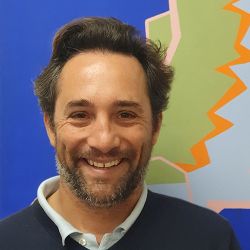Charles Caraguel
The University of Adelaide
e Learning Committee
Dr Charles Caraguel is an Associate Professor in Veterinary Epidemiology at the University of Adelaide and is a member of the Asia Pacific Consortium of Veterinary Epidemiology (APCOVE).
Charles focused his education and training on the health and welfare of aquatic species. After graduating from the National Veterinary School of Toulouse (France), he obtained a specialised veterinary school diploma in aquaculture and fish pathology (Nantes, France). Charles completed a Master of Science degree at the Atlantic Veterinary College (PEI, Canada), where he developed a diagnostic test using molecular techniques to detect and characterise a pathogenic amoeba, Neoparamoeba spp. Recognising the importance of population medicine in aquaculture where massive populations of animals are involved, Charles pursued his graduate training with a PhD in aquatic epidemiology through the Centre for Aquatic Health Sciences (AVC). He investigated the performance and use of diagnostic tests in fish disease surveillance and control programs for Infectious Salmon Anaemia virus. This experience provided him with specialised training to identify, investigate and analyse fish health that is problematic and directly impacts the sustainability of aquaculture industries.
Overall, Charles’ goal is to improve understanding, establish evidence, and develop more effective health risk identification and management in the aquaculture industry using epidemiology of infectious and non-infectious diseases. Epidemiology (field-based) research activity is also required to assess the applicability and validate in real field settings the outcomes from disease intervention studies (lab-based). The complex interaction between disorder characteristics, host species responses and environmental factors directly impacts the effectiveness of intervention and management for aquatics. Field-based comprehension of health disorders is critical to the decision-making process based on evidence and contributes to the implantation health policies in aquatic animal health by government and industry.
